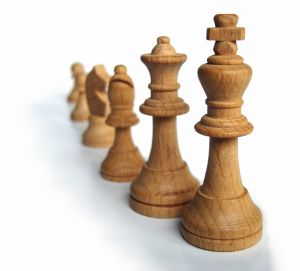Plateaus and You
 The brain needs time to assimilate and integrate new information as knowledge and to resolve conflicts with previously learned concepts and plateaus equate to slower progress while we assimilate new ideas. Not until we internalize these new ideas as knowledge are we able to move on to the next phase in our learning. Plateaus are a normal phase of the learning process. The goal is to minimize the amount of time spent in a plateau, and to identify if our plateau is part of the normal learning curve or if it is a result of a deficiency in our learning process.
The brain needs time to assimilate and integrate new information as knowledge and to resolve conflicts with previously learned concepts and plateaus equate to slower progress while we assimilate new ideas. Not until we internalize these new ideas as knowledge are we able to move on to the next phase in our learning. Plateaus are a normal phase of the learning process. The goal is to minimize the amount of time spent in a plateau, and to identify if our plateau is part of the normal learning curve or if it is a result of a deficiency in our learning process.
Sometimes we plateau for reasons that fall outside the normal learning curve. You might plateau if you are missing fundamental knowledge which would have served as a building block to move on to the next level. Or perhaps the information you are learning is too advanced for your level, and you cannot internalize the concept.
Another common cause for prolonged plateaus is overtraining. If you find that you do not look forward to practicing, or are finding less and less time to devote to chess, these are common symptoms of overtraining and a break from chess might be in order.
Less, Different, Harder
As we mentioned before plateaus are normal, and the slow and steady progress made during this phase is critical to a healthy learning process. The length of time spent in a plateau differs between people and even between learning curve phases. As a result, it is very difficult to diagnose if a plateau has overstayed its welcome. The only way around this, is to be proactive in your training program and to build it in such a way where you are constantly challenging yourself and feeding yourself the right amount of content at the right time in your development and you have the appropriate feedback mechanisms in place to detect weaknesses.
- Study your own games so you don’t make the same mistakes over and over again.
- Have a coachevaluate your weaknesses, and focus your work on your weakest areas .
- Are you overtraining? If so, it might be a good idea to take a 1-2 week break from chess. You will find that you will return refreshed and invigorated.
- Change your training program periodically. This allows you to be a better rounded chess player, and by keeping your training sessions new and exciting it doubles as a cure to overtraining.
- Don’t be discouraged by plateaus, remember you are still improving at a slow pace and that this is part of the normal learning process.
- Increase the intensity of your training. A good method of increasing your training intensity is to cycle intense training session that last 1-2 weeks to help jar yourself free of a plateau. You need to be careful that you do not over train yourself during these intense study cycles. An example of cycling intense training cycles might go something like this: 2 weeks of intense training followed by 4 weeks of normal training activity.
- Enjoy the practice, these things take time.
By working hard and enjoying the practice improvement will come sooner or later (I hope so).
Those suggestions are very helpful, I am considering to get a coach for my son to evaluate his weakness.